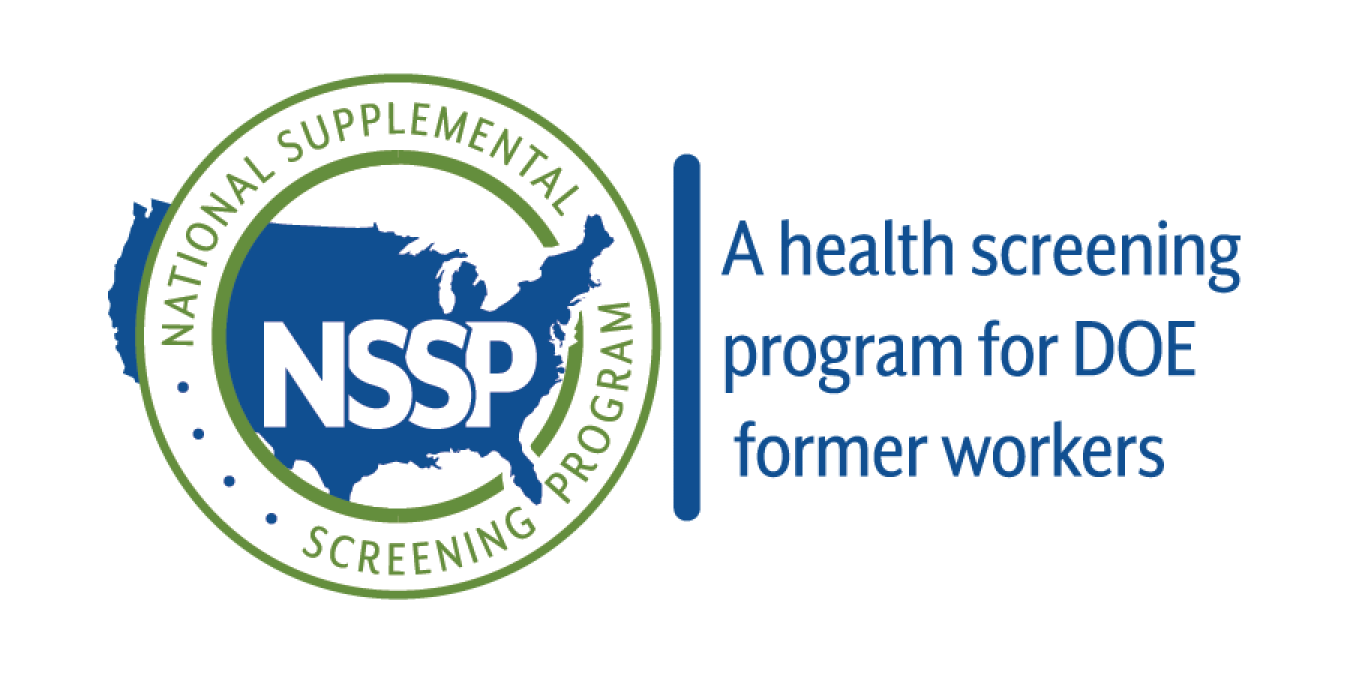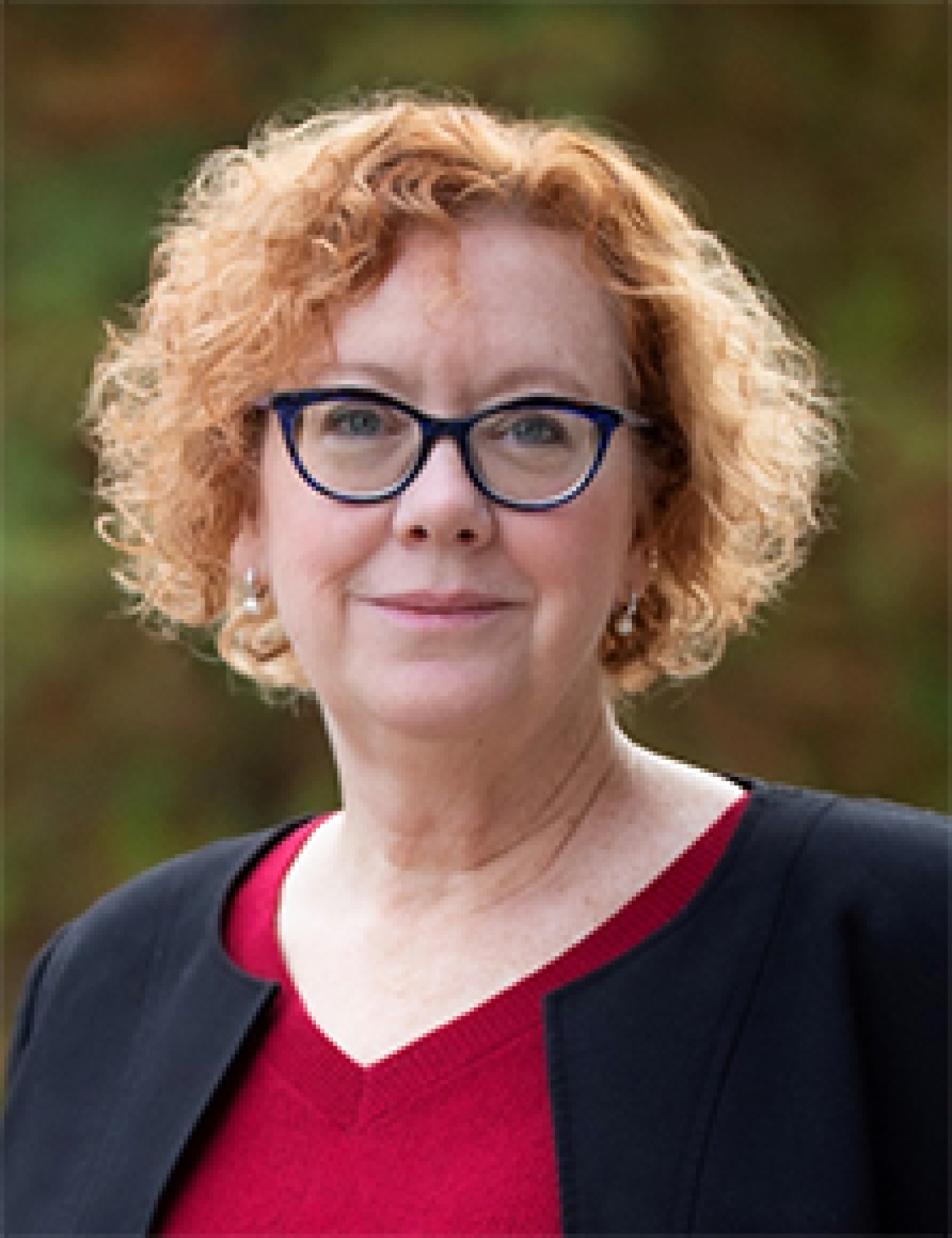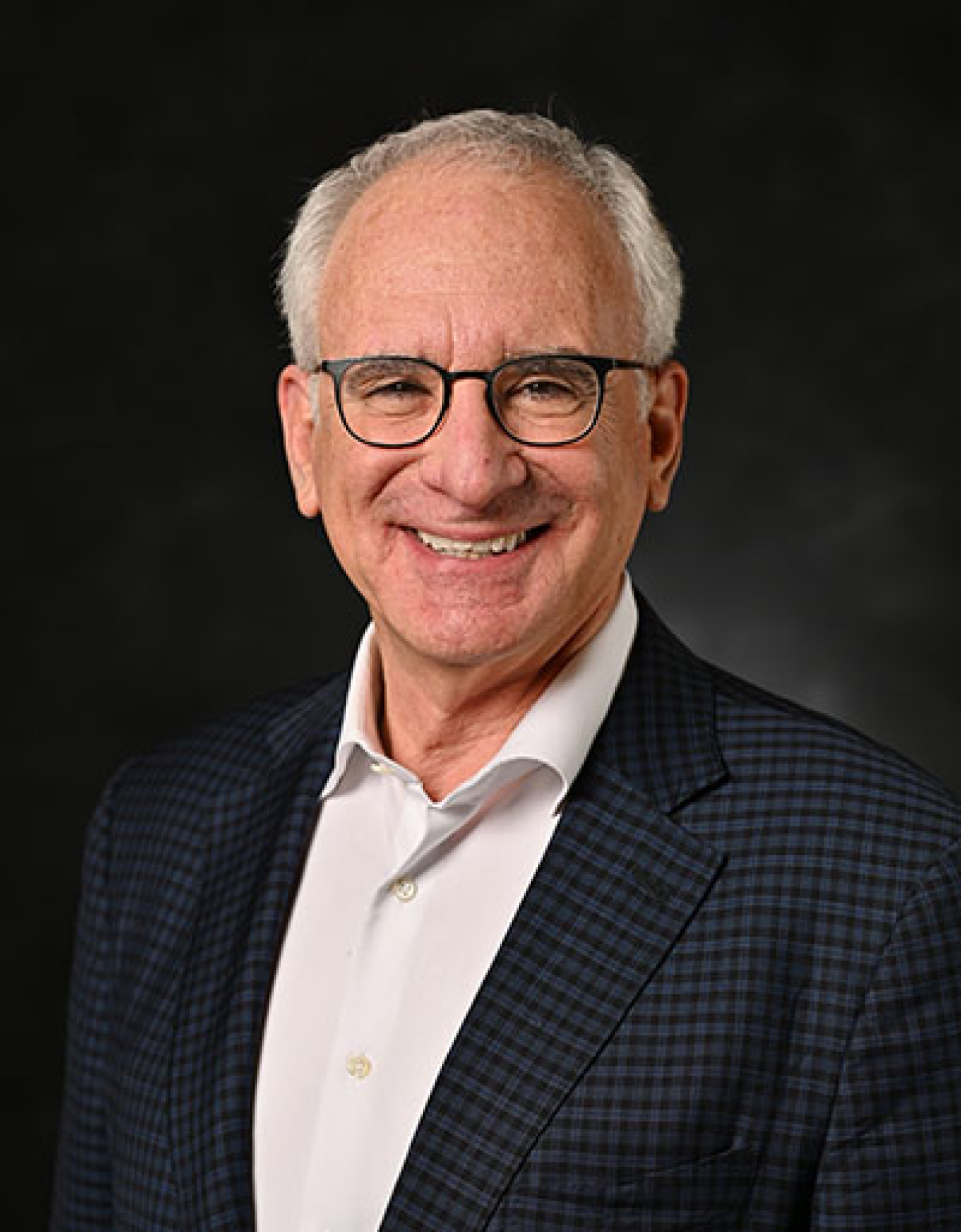
Who We Are:
The National Supplemental Screening Program (NSSP) is managed by Oak Ridge Associated Universities (ORAU). ORAU integrates academia, government, and industry to advance the nation’s learning, health, and scientific knowledge to build a better world. ORAU accomplishes the needs of the NSSP by integrating unique, specialized teams of experts and connecting DOE former workers to the right people and resources in their area for medical screening examinations.
The NSSP team of experts includes:
- National Jewish Health – an academic medical research facility specializing in respiratory, cardiac, immune, and allergic disorders. National Jewish Health provides the NSSP with medical examinations, beryllium lymphocyte proliferation tests, and chest x-ray b-read services.
- University of Colorado School of Public Health: Centers for Health, Work & Environment – provides the NSSP with medical examination results review and summary-letter preparation, operational oversight, and periodic evaluation of the DOE/NSSP medical protocol. The CU team also participates in research activities, sharing responsibility with ORAU for leading studies.
- Acuity International – a leading provider of medical management solutions, with one of the country’s largest nationwide clinic networks. Acuity provides the NSSP with participant scheduling and medical examination services at more than 2,600 facilities around the country. With staff physician oversight, Acuity medical readiness teams respond to NSSP participants’ medical screening needs.
- Cority – provides the NSSP with ReadySet®, a health management system, to increase compliance, participant engagement, and organizational efficiency. ReadySet® is tailored to the NSSP’s unique needs and meets all applicable Federal security requirements.
Contact Information:
Toll-free number: 1-866-812-6703
Web site: http://www.orau.org/nssp
What we do:
- The NSSP is the youngest of the DOE Former Worker Programs, having begun operations in 2005. The NSSP provides medical screening examinations to DOE former workers from production, operations, research, administration, and various other occupation groups from eight primary DOE sites:
- Argonne National Laboratory
- Fermi National Accelerator Laboratory
- Hanford Site
- Kansas City Plant
- Princeton Plasma Physics Laboratory
- Pinellas Plant
- Rocky Flats Plant
- Savannah River Site
- The NSSP has also screened former workers from dozens of additional DOE sites, including:
- referrals from site-specific Former Worker Program (FWP) projects in cases where eligible former workers live outside of those programs’ respective medical screening coverage areas and
- DOE sites for which no regional FWP has been established or assigned.
- The NSSP provides DOE former workers with exposure-based medical screening examinations designed to identify medical conditions of both occupational and non-occupational origin. In addition to the screening results themselves, we provide customized recommendations to participants regarding follow-up guidance, wellness information, and support for lifestyle changes to improve their health and quality of life.
- The NSSP provides participants with the opportunity to receive a “rescreening” examination every three years.
- The NSSP provides DOE former workers with information about and assistance in filing Energy Employee Occupational Illness Compensation Program (EEOICP) benefits claims with the Department of Labor (DOL).
- Over the program’s 20-year existence, more than 99% of responding participants have been satisfied with their experience in the NSSP.
- The NSSP has developed an active research program involving projects on a range of topics related to former worker health and wellbeing. This research agenda maintains a consistent focus on providing a benefit to former workers and improving the reach, efficiency, and impact of the NSSP. Current projects all involve close collaboration between researchers at ORAU and the University of Colorado.
What we have found:
The NSSP has conducted initial medical screening examinations for 22,359 DOE former workers from 81 DOE sites and 10,983 rescreening examinations for those workers.
| Chest X-Rays (with B-Read interpretation): Participants tested = 21,345 | |
|---|---|
| 9.5% | had findings consistent with asbestosis without pleural disease |
| 1.2% | had findings consistent with asbestosis with pleural disease |
| 5.5% | had findings consistent with asbestos-related pleural disease |
| 0.3% | had findings consistent with silicosis |
| 0.0% | had findings consistent with mixed dust pneumoconiosis |
| 6.3% | had findings consistent with pneumoconiosis, not otherwise specified |
| Pulmonary Function Test: Participants tested = 20,792 | |
| 18.7 | had findings consistent with obstructive lung disease (obstructive pattern and mixed pattern combined) |
| Beryllium Lymphocyte Proliferation Test: Participants tested = 19,939 | |
| 2.9% | had at least one abnormal BeLPT |
| Audiometry: Participants tested = 19,373 | |
| 44.3% | demonstrated noise-induced hearing loss for normal speech tones |
| 2.2% | w/ supplemental definition of occupational noise-induced hearing loss |
PRINCIPAL INVESTIGATORS:

Jamie L. Stalker, M.D.
Dr. Stalker is a physician with Oak Ridge Associated Universities (ORAU), manager of the ORAU Arvada Office, and the Senior Director and Principal Investigator of the National Supplemental Screening Program (NSSP). Dr. Stalker joined the ORAU/NSSP team in 2021, having been a member of the NSSP’s external advisory committee since 2006. She has extensive experience as a medical director in the Department of Energy (DOE) complex and remains dedicated to the health and safety of the DOE workforce. Dr. Stalker is board certified in internal medicine and has spent 25 years practicing occupational medicine, including 15 years managing an onsite occupational health program at a DOE site. Her experience includes integration with human resources, industrial hygiene, radiation safety, legal, finance, business infrastructure, security, quality assurance, external contractors, and DOE-affiliated organizations. She has implemented and managed Accreditation Association for Ambulatory Health Care (AAAHC)-certified clinical and administrative service programs, including occupational medicine, wellness, physical therapy, ergonomics, and disability management (including workers compensation administration) programming. She has extensive familiarity with federal regulations applicable to DOE sites and the creation and implementation of compliant policies and procedures. Dr. Stalker is a frequent presenter at national conferences and meetings, including the American Occupational Health Conference (AOHC), TexMed, the EFCOG Occupational Medicine Technical Task Group, Integrated Benefits Institute conferences, Virgin Pulse Thrive conferences, American Industrial Hygiene Association (AIHA) meetings, Midwest Business Group on Health conferences, and Conference Board workforce resilience conferences.

Lee S. Newman, MD, MA, FCCP, FACOEM, F. Collegium Ramazzini
Dr. Newman is Distinguished University Professor at the University of Colorado in the Colorado School of Public Health and School of Medicine. In the Colorado School of Public Health, he has appointments in the Department Environmental and Occupational Health and the Department of Epidemiology. He is Director of the Center for Health, Work and Environment and Director of the National Institute for Occupational Safety and Health-supported Mountain and Plains Education and Research Center. In the School of Medicine, he is in the Division of Pulmonary Sciences and Critical Care Medicine at the University of Colorado Anschutz Medical Campus. Dr. Newman serves as the Co-Principal Investigator of the National Supplemental Screening Program (NSSP). In his past role as founder and CMIO of Axion Health, Dr. Newman led the team in the development of the highly secure software system that has been used by the NSSP since 2005 to efficiently conduct former energy worker exams throughout the country. He has also served as an advisor to many federal agencies, including the DOE, the DOL Energy Employee Occupational Illness Compensation Program (EEOICP), the National Institutes of Health, the Food and Drug Administration, the Environmental Protection Agency, and the Centers for Disease Control and Prevention. Dr. Newman is board certified in internal medicine and pulmonary medicine and is an internationally renowned expert on occupational and environmental lung disorders. Dr. Newman is recognized for his contributions to our understanding of how beryllium affects the immune system. As the former Chief of the Division of Environmental and Occupational Health at National Jewish Health, he pioneered the use of the beryllium lymphocyte proliferation test (BeLPT) and was instrumental in bringing this test into routine use for both clinical diagnosis and screening of beryllium-exposed workers, leading to the current clinical definition of beryllium sensitization and chronic beryllium disease. Dr. Newman received his Bachelor of Arts degree in psychology from Amherst College and his Masters of Arts degree in social psychology from Cornell University Graduate School of Arts and Sciences. He earned his MD from Vanderbilt University School of Medicine, completed internship and residency in Internal Medicine at Emory University School of Medicine, and pulmonary fellowship at the University of Colorado Denver/National Jewish Health.

